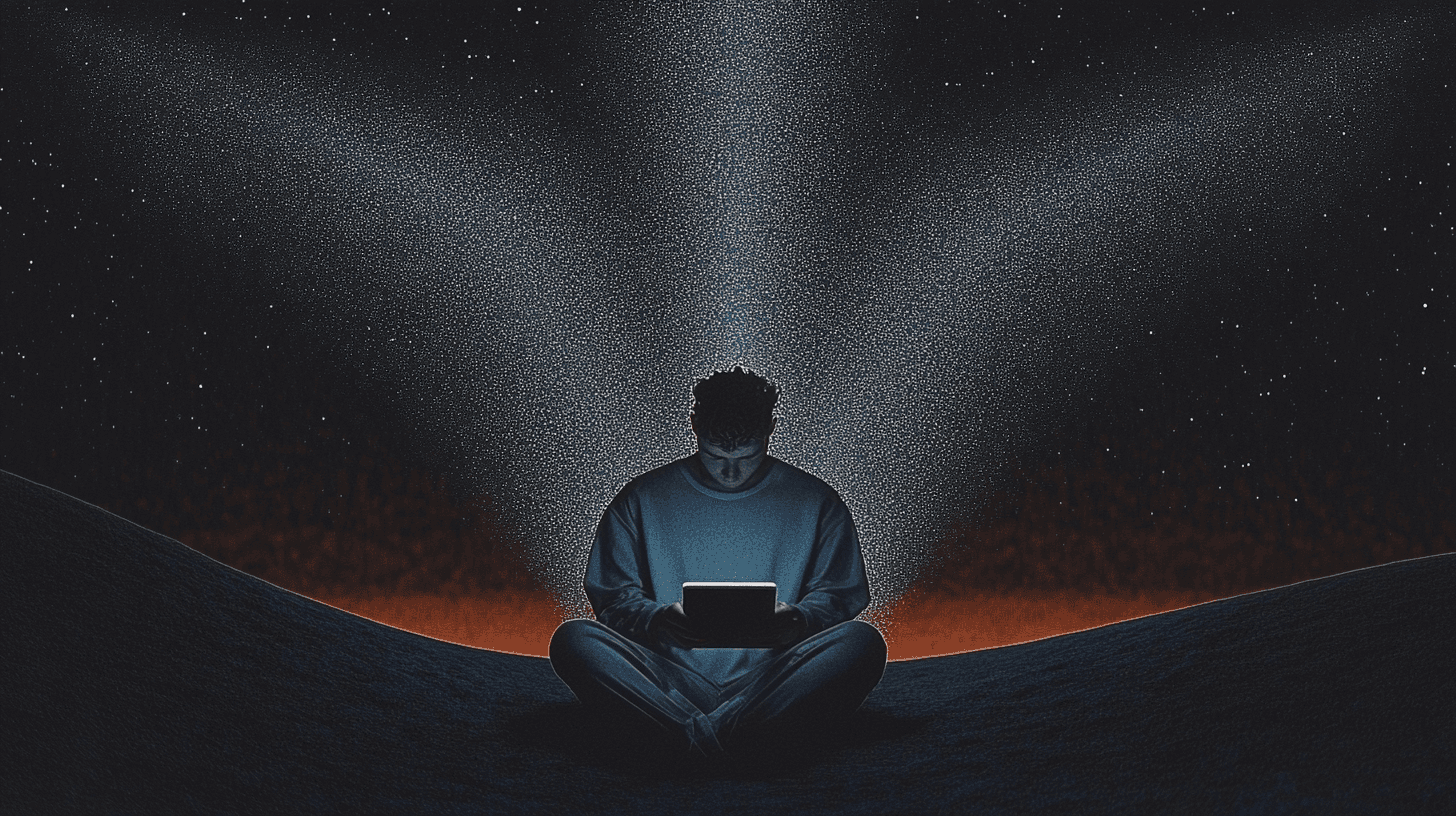
Mindaugas Petrutis
18 Dec 2024

Imagine you’re at a party. Not just any party, a party with everyone. The entire world crammed into a single room, all awkwardly balancing flimsy paper plates piled high with mini quiches and cocktail shrimp.
At first, it’s kind of amazing. You shake hands with the CEO of a Fortune 500 company. You chat with an astronaut. You bump into your high school math teacher, who you didn’t even like but somehow feel compelled to update on your life.
And then you realise that the room is very loud. People keep shoving business cards into your hand without even making eye contact. Someone asks what you do, and when you start to answer, they glance over your shoulder to see if someone more interesting just walked in.
That’s what our social and professional networks feel like now: one massive, never-ending, slightly overwhelming party.
We have LinkedIn feeds that look like spam folders. We have inboxes so full of noise we can’t hear ourselves think. We have relationships that feel more like transactions.
And yet, we keep playing along because we’ve convinced ourselves that more is always better. But is it?
What happens when you’re facing something really complex like an impossible decision or a challenge so personal it feels ridiculous to even say out loud? Who do you call? Probably not the person who “endorsed” your PowerPoint skills five years ago. And definitely not the random connection who sent you a cold DM about synergy.
You call the one or two people you actually trust, the ones who get you, the ones who’ll give you the truth.
But those relationships are hard to build in systems designed for scale because networks today are optimised for introductions, not intimacy. When everyone is an option, no one feels essential. And the bigger they get, the harder it becomes to find the people who matter.
Building a professional network should feel more like finding those one or two people than collecting a pile of strangers who’ll forget your name the second you walk away. But that’s not how we’ve been taught to think about it.
This is the gap no one wants to talk about. Networks have become pipelines for content, not trust. Platforms designed for reach, not real relationships. We’ve gotten addicted to visibility instead of closeness. And what we’ve lost is the ability to ask for help, to be vulnerable, to feel like anyone on the other end actually understands us.
Somehow, after two decades of social networks we’re lonelier, more uncertain, more isolated in the moments we need connection most. So we keep drifting.
I love the internet. I love all the access, the connections, the endless scroll of possibilities. But lately, I’m starting to feel like the world we’ve built is unsustainable. People are opting out. Quietly, at first. Turning off notifications, ghosting Slack, letting the unread emails pile up. But it’s happening. The age of infinite reach is giving way to something smaller, quieter, more intentional.
I started noticing whispers of this a couple of years ago. Not just in professional circles, but personal ones too. My most likely highly ADHD brain caught every stray comment under a million posts, stitched together fragments from fifty different networks, and heard the same thing over and over again: People are fucking lonely.
And that’s the part we never say out loud. That the inbox is full, but the soul is empty.
Now you might be thinking, Okay, here it comes. The sales pitch. This guy’s building something, so of course he’s got a manifesto for a better world.
But there’s no pitch.
Just a question: What if the loneliness we feel isn’t the glitch? What if it’s the system working exactly as designed?
Editor’s Note:
The button below is an ironic contradiction. I couldn’t remove it, but at least we can all appreciate the humour in that.